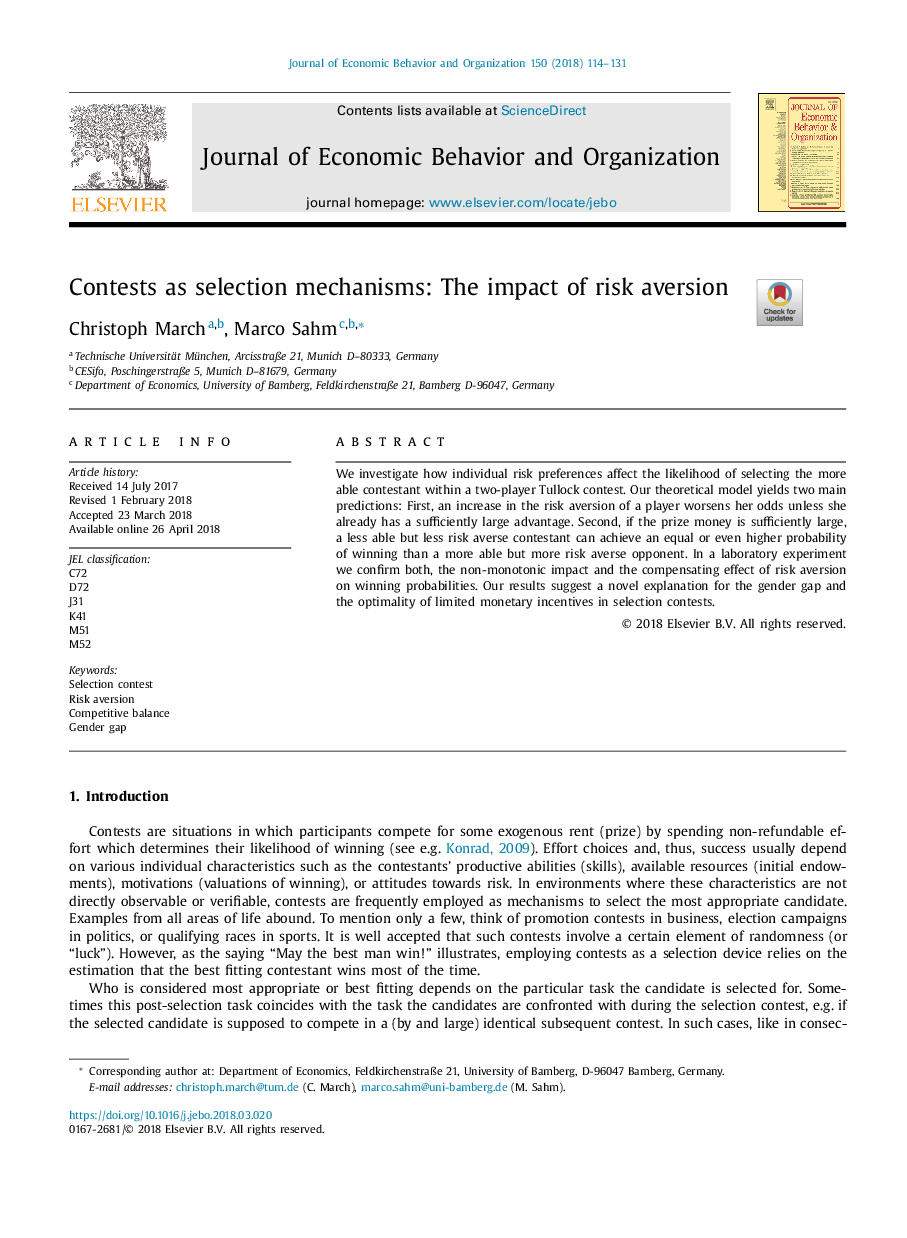| Article ID | Journal | Published Year | Pages | File Type |
|---|---|---|---|---|
| 7242513 | Journal of Economic Behavior & Organization | 2018 | 18 Pages |
Abstract
We investigate how individual risk preferences affect the likelihood of selecting the more able contestant within a two-player Tullock contest. Our theoretical model yields two main predictions: First, an increase in the risk aversion of a player worsens her odds unless she already has a sufficiently large advantage. Second, if the prize money is sufficiently large, a less able but less risk averse contestant can achieve an equal or even higher probability of winning than a more able but more risk averse opponent. In a laboratory experiment we confirm both, the non-monotonic impact and the compensating effect of risk aversion on winning probabilities. Our results suggest a novel explanation for the gender gap and the optimality of limited monetary incentives in selection contests.
Related Topics
Social Sciences and Humanities
Economics, Econometrics and Finance
Economics and Econometrics
Authors
Christoph March, Marco Sahm,
